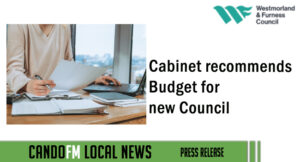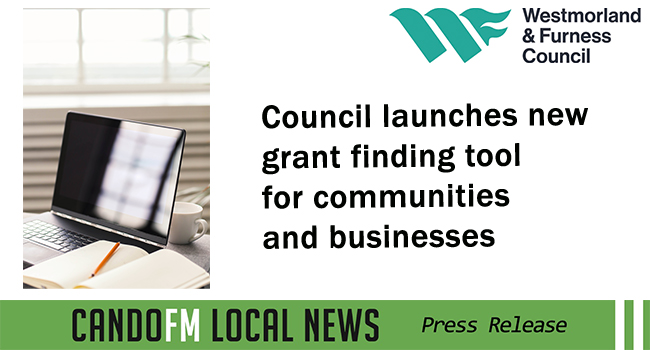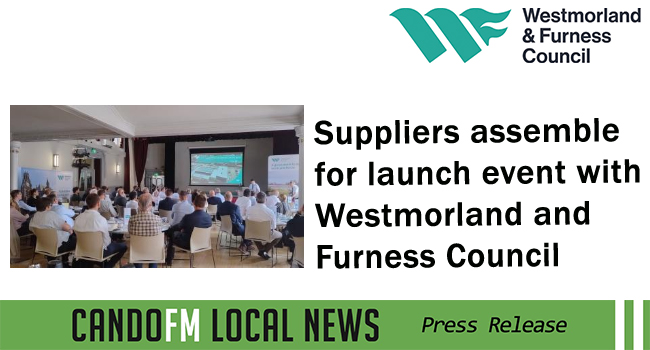
The Shadow Authority for Westmorland and Furness Council’s Cabinet has today agreed recommendations for the new council’s budget, including changes to council tax and spending plans for the next five years.
The recommendations will be considered at the meeting of the Westmorland and Furness Shadow Authority meeting on 7 March, where a final decision will be made.
Cabinet’s recommendations on council tax follow a four-week public consultation, during which more than 1100 local people provided feedback.
The council tax recommendations that will be made to the Shadow Authority are:
- To implement a 4.99% rise in council tax from 1 April. This is made up of a 2.99% basic increase plus another 2% specifically to help fund adult social care, known as the Adult Social Care Precept.
- To harmonise council tax levels across the Westmorland and Furness area from 1 April.
- To introduce a 100% council tax premium on second homes from 2024/25.
Councillor Andrew Jarvis, Cabinet Member for Finance, said: “I want to thank everyone for taking part in the consultation. It was really positive to have so many people share their views. We have reviewed the feedback and it’s very clear that there are many strongly held opinions about what we should do.
“Many people are concerned about the 4.99% rise in the current financial climate. We recognise that, but we are in a very difficult financial position in our first year as a new council.
“To not increase council tax would mean making significant and immediate changes to services that people rely on, changes we have been unable to plan for as a Shadow Authority. We don’t think that’s right. We know that some people that may find the additional cost difficult, that’s why we have ensured that we have a generous council tax reduction scheme available to help, including automatically treating an application for Universal Credit as an application for council tax reduction.
“There was broad support for our harmonisation plans, but we also noted the frustration that some people feel about it. Unfortunately, we are required by law to harmonise, but doing this in the first year means there will be a level playing field for next year.
“A clear majority of respondents were in favour of our plan to increase council tax on second homes, but respondents to the consultation also raised legitimate concerns about possible adverse impacts of the policy. We are committed to using the next 12 months to review the issue in detail before we proceed further.
“Generally, the consultation really demonstrated people’s frustration about how some council services work, or don’t work, for them or their area. We don’t have a magic wand, but we are ambitious for our area and committed to transforming our services over the coming years, making them more efficient, more effective and providing better value for money.”
At today’s meeting, Cabinet also agreed a Medium-Term Financial Plan to recommend to the Shadow Authority. The plan sets out how the council will manage its finances to ensure it is able to deliver a balanced budget in the coming years.
It includes details of the £268 million net revenue budget (for 2023/4 and growing in subsequent years) and a planned £253 million of capital spending over the next five years on projects around the area.
Included in the plan, for 2023/24 only, is £26 million of additional financial support from Government to help cover the council’s running costs and allow investment in service transformation. The money is required because of the immediate short-term financial pressures created by local government reorganisation. If agreed by Government, this money will be paid back in subsequent years, allowing the council to spread the cost of transition.
Commenting on the Medium-Term Financial Plan, Councillor Jarvis said: “Creating a unitary council that provides all local services is a big opportunity to become more streamlined and efficient, reduce costs and improve services. This plan sets out the financial framework for how we will do that.
“We have some short-term financial pressures as we form the new council, and we need Government to allow us to borrow money to give us breathing space to deal with them. Granting us that flexibility will mean we can invest additional money to help us stabilise, integrate, and transform the services we have inherited from the four predecessor councils. With this work done, we will be in a sound financial position for subsequent years and able to deliver our ambitious plans for the area.”
Full details of the council tax proposals, medium-term financial plan, and consultation feedback report can be found at: https://westmorlandandfurness.moderngov.co.uk/ieListDocuments.aspx?CId=139&MId=121
For more information about the council tax reduction scheme, people should contact their current district council. There will also be information about the council tax reduction scheme included with council tax bills when they are delivered to households in March.
Westmorland and Furness Council is acting in ‘shadow’ form as its councillors engage in the planning and preparation for Vesting Day on 1 April 2023.
1 April 2023 is the point where Westmorland and Furness Council and its councillors will officially take over responsibility for all services across the Barrow, Eden and South Lakeland areas and the existing Barrow Borough, Eden District and South Lakeland District councils, along with Cumbria County Council, will be dissolved.
Until April 2023 all current services will continue to be delivered by the existing councils, overseen by the councillors on those councils.







